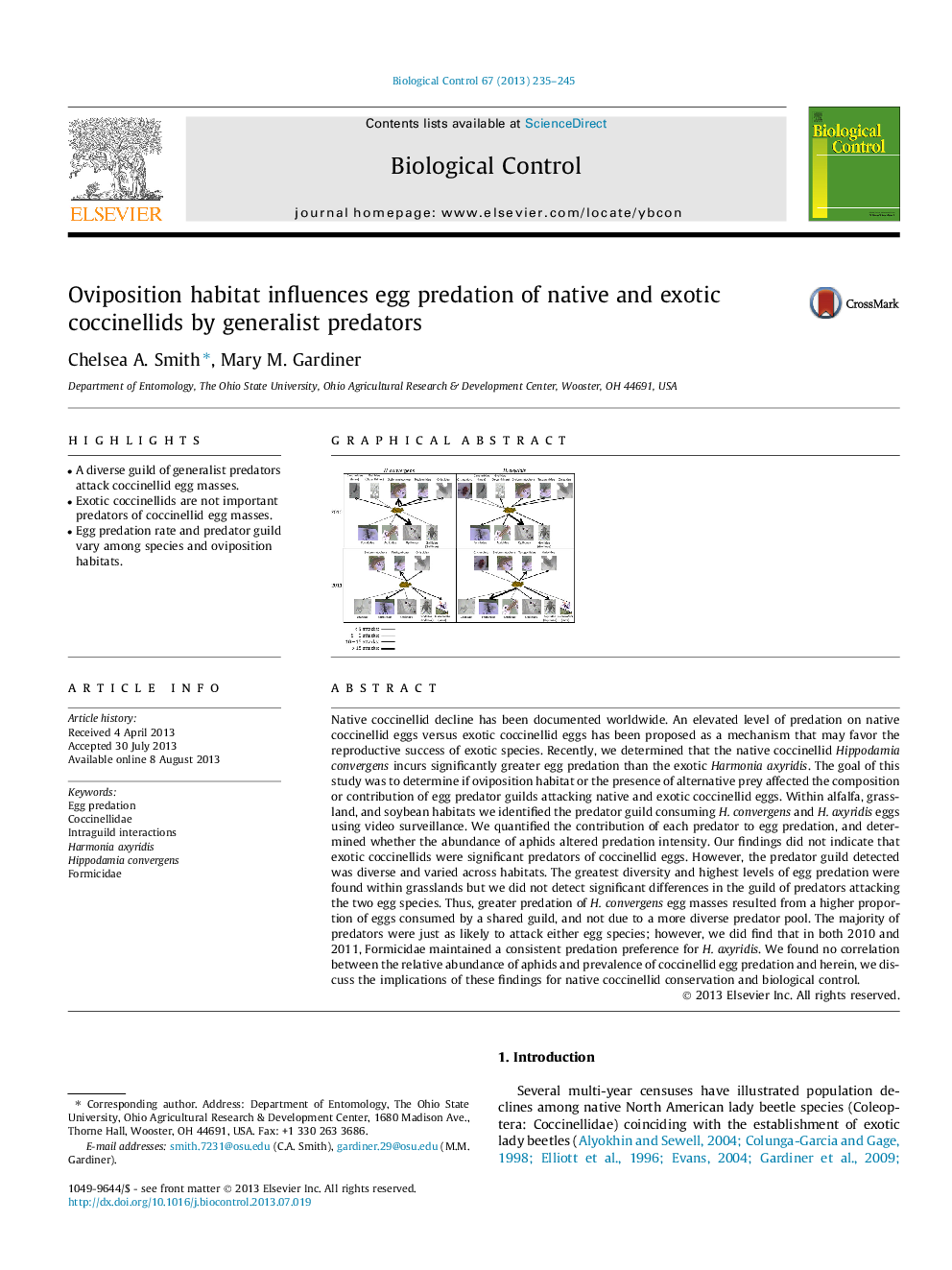| کد مقاله | کد نشریه | سال انتشار | مقاله انگلیسی | نسخه تمام متن |
|---|---|---|---|---|
| 4504056 | 1321054 | 2013 | 11 صفحه PDF | دانلود رایگان |

• A diverse guild of generalist predators attack coccinellid egg masses.
• Exotic coccinellids are not important predators of coccinellid egg masses.
• Egg predation rate and predator guild vary among species and oviposition habitats.
Native coccinellid decline has been documented worldwide. An elevated level of predation on native coccinellid eggs versus exotic coccinellid eggs has been proposed as a mechanism that may favor the reproductive success of exotic species. Recently, we determined that the native coccinellid Hippodamia convergens incurs significantly greater egg predation than the exotic Harmonia axyridis. The goal of this study was to determine if oviposition habitat or the presence of alternative prey affected the composition or contribution of egg predator guilds attacking native and exotic coccinellid eggs. Within alfalfa, grassland, and soybean habitats we identified the predator guild consuming H. convergens and H. axyridis eggs using video surveillance. We quantified the contribution of each predator to egg predation, and determined whether the abundance of aphids altered predation intensity. Our findings did not indicate that exotic coccinellids were significant predators of coccinellid eggs. However, the predator guild detected was diverse and varied across habitats. The greatest diversity and highest levels of egg predation were found within grasslands but we did not detect significant differences in the guild of predators attacking the two egg species. Thus, greater predation of H. convergens egg masses resulted from a higher proportion of eggs consumed by a shared guild, and not due to a more diverse predator pool. The majority of predators were just as likely to attack either egg species; however, we did find that in both 2010 and 2011, Formicidae maintained a consistent predation preference for H. axyridis. We found no correlation between the relative abundance of aphids and prevalence of coccinellid egg predation and herein, we discuss the implications of these findings for native coccinellid conservation and biological control.
Figure optionsDownload as PowerPoint slide
Journal: Biological Control - Volume 67, Issue 2, November 2013, Pages 235–245